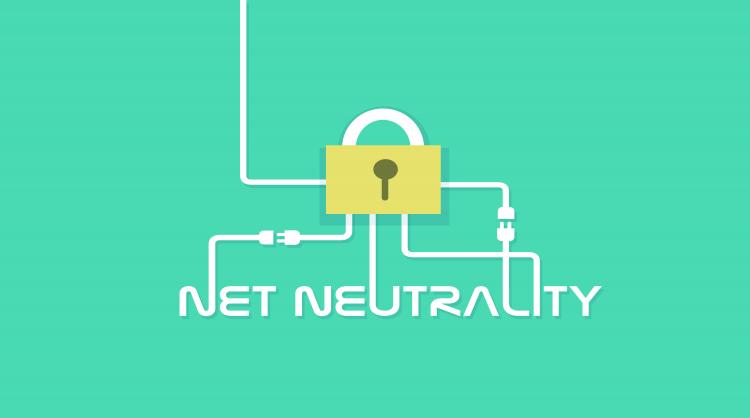Democrats Now Want Net Neutrality Extended to Internet Content Providers
November 17, 2017 | by Andrew Regitsky

 Internet edge (content) providers have always been some of the leading advocates for keeping the 2015 Open Internet rules for ISPs in place, including forbidding the blocking, throttling, and paid prioritization of Internet traffic. For example, Twitter wrote in a blog post earlier this year that, "[w]ithout net neutrality in force, ISPs would even be able to block content they don't like, reject apps and content that compete with their own offerings, and arbitrarily discriminate against particular content providers by prioritizing certain Internet traffic over theirs."
Internet edge (content) providers have always been some of the leading advocates for keeping the 2015 Open Internet rules for ISPs in place, including forbidding the blocking, throttling, and paid prioritization of Internet traffic. For example, Twitter wrote in a blog post earlier this year that, "[w]ithout net neutrality in force, ISPs would even be able to block content they don't like, reject apps and content that compete with their own offerings, and arbitrarily discriminate against particular content providers by prioritizing certain Internet traffic over theirs."
While the industry association for edge providers wrote in an August 17, 2017 press release:
Americans overwhelmingly support strong, enforceable net neutrality rules at the FCC,” said Internet Association President & CEO Michael Beckerman. “There is simply no reasonable justification for repealing the net neutrality protections currently on the books. The record fails to show any compelling evidence that the 2015 Open Internet Order has harmed the internet ecosystem, either through reduced investment or some other means. (Internet Association, August 17, 2017 Press Release).
But as we have learned in working in telecom regulation for 30 years, what goes around, comes around. And in a delicious taste of irony, Democratic Senators such as Al Franken and Elizabeth Warren are now speaking out in favor of extending the net neutrality rules to include edge providers.
In a November 8,2017 article in the Guardian newspaper, Franken noted the tremendous power edge providers have over the lives of Americans:
As it stands now, Google and Facebook control 75% of all internet news traffic referrals, meaning that three out of four times an internet user accesses a news story online, they get there via Google or Facebook. The numbers are even more alarming by topic. According to Parsely analytics, almost 60% of “US Presidential Politics” traffic comes through Facebook, nearly 25% comes through Google, and less than 16% comes through other sources.
And he concluded that with their great power, there is no reason why the 2015 net neutrality rules should not also apply to edge providers.
As tech giants become a new kind of internet gatekeeper, I believe the same basic principles of net neutrality should apply here: no one company should have the power to pick and choose which content reaches consumers and which doesn’t. And Facebook, Google, and Amazon – like ISPs – should be “neutral” in their treatment of the flow of lawful information and commerce on their platforms.
Following years of hard work and dedication, we found in the Open Internet Order a strong and time-tested framework to protect net neutrality. While we fight to preserve the Order, we must now begin a thorough examination of big tech’s practices in order to secure the free flow of information on the internet.
Suddenly the edge providers have gone silent on this issue.
Of course, we know that with the FCC expected to release its Order as early as next week, in which it will almost surely eliminate the bright line net neutrality rules, there is no chance that the current Open Internet rules will be extended to edge providers. Moreover, when the new Net Neutrality Order is dragged through a multi-year court appeal, the judiciary will only be debating net neutrality for ISPs. Therefore, left to the FCC, content provider net neutrality is at best, years away. That is why we believe the only viable long-term solution for Internet regulation is through a Congressional compromise.
Congress is the only authority that can provide a solution that will last longer than one presidential administration. In addition, it can develop Internet rules that are concerned less with the proper classification of broadband Internet access service and more with rules that treat all Internet players the same and protect Internet users, big and small.
We thought it foolish when the previous FCC advocated for stringent privacy rules for ISPs while leaving the relatively lenient rules for edge providers untouched. Likewise, we think it is equally foolish in the long run that edge providers face no Internet regulation while their ISP counterparts face stringent rules. Therefore, we again plead with Congress to somehow come together to solve the enigma of Internet regulation once and for all. Otherwise, we will continue to face years of uncertainty.
By Andy Registky, CCMI

